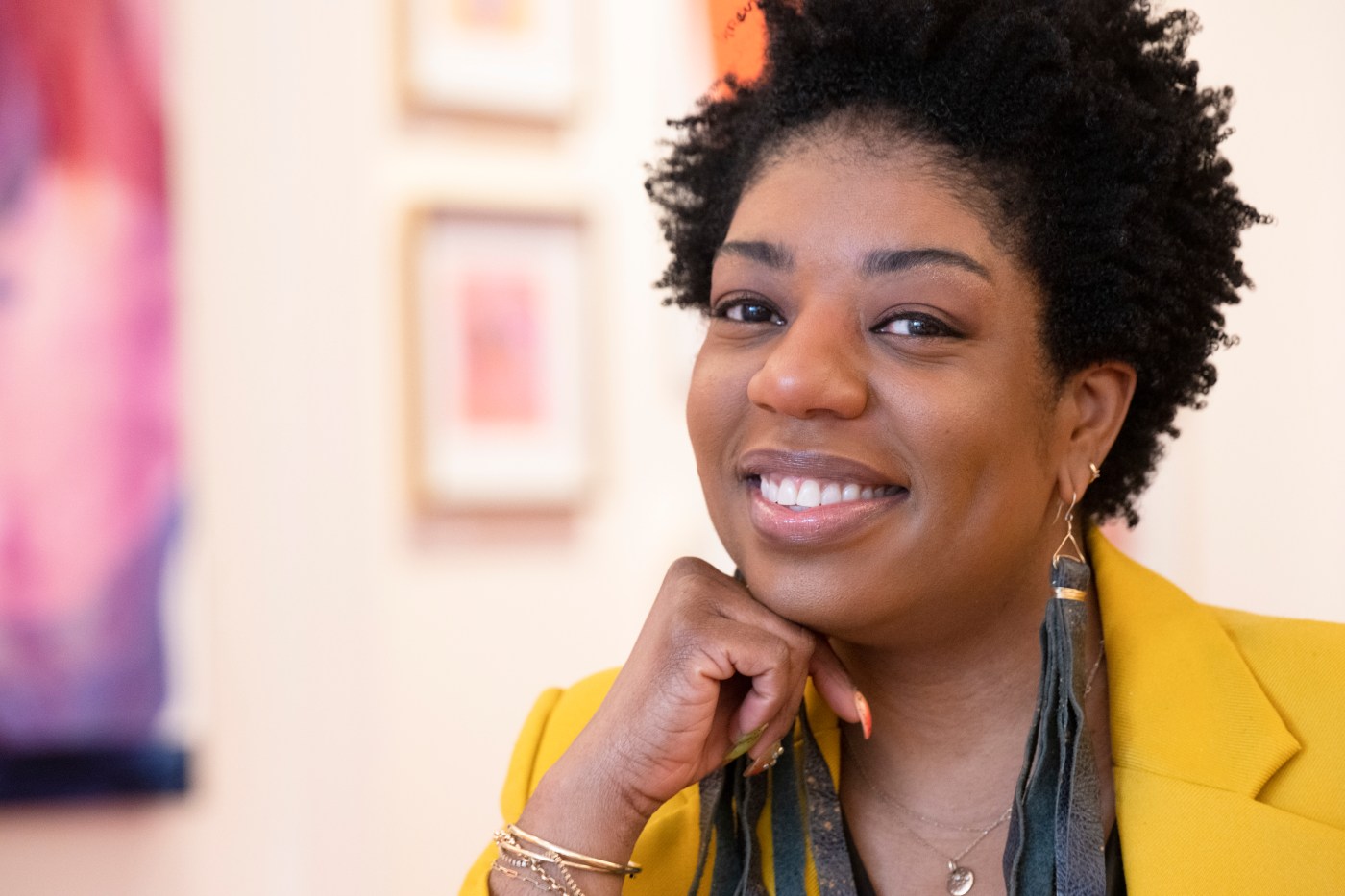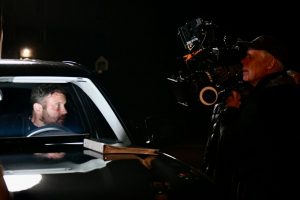
How St. Paul’s Woke Coach pushes through discomfort to strengthen office culture
To put it simply, Seena Hodges said her life’s work is to foster environments where people can be their best selves.
Based in St. Paul, Hodges’ company, The Woke Coach, works to make that a reality by facilitating conversations that help improve — and sometimes challenge — a company’s culture.
As defined by The Woke Coach, “woke” — a term that has become loaded politically — means being aware that one’s own experience is not the quintessential lived experience. To be woke means you are aware of how power, systems and access impact any given situation.
When Hodges launched her company in 2018, she was working with individuals who wanted to better themselves and their understanding of others’ experiences.
“I didn’t start a company to start a company. I wanted to create environments where people could grow and emulate the conversations that I have with my friends at happy hour,” said Hodges, who is also the author of the newly-released “From Ally to Accomplice: How to Lead as a Fierce Antiracist.”
One of the individuals she was coaching at the time asked her to come to their office and share her knowledge with the whole team.
What does the coaching look like?
When Hodges and her team take on a new business client, they first do an “equity audit,” where they look at policies, procedures, social pages and the language that is used.
“We look at everything to see where equity and inclusion are present and where there are opportunities,” she said.
People are often anxious at the beginning, Hodges said. “They are afraid because they don’t know what to expect. … You also don’t want to be blamed for the poor culture.”
Through open and honest conversations and assigned homework that is rooted in reflection, businesses are able to figure out where and how they can improve.
“It’s about creating conditions where people feel brave enough to talk about what’s really happening,” she said.
When it comes to fostering an environment that encourages people to be vulnerable, that is where Hodges shines.
“My talent is being able to get along with and talk to anybody,” she said. “I think that’s my gift.”
But participating in the teachings is not the most important part, Hodges said; instead, it is what the company does afterward with the knowledge gained.
“It is our job to bridge that gap between where they are and where they want to be,” she said.
Grappling with resistance
It is no secret that ”woke” has become a polarizing term in the U.S.
In Florida, Republican Gov. Ron DeSantis signed a measure called the “Stop W.O.K.E. Act” that limits the way gender and race are discussed in classrooms and workplaces. The law was later blocked by a federal judge on the grounds that it violated the First Amendment.
Supporters of the bill, which stands for “Stop the Wrongs to Our Kids and Employees,” believe that inclusive teachings will teach “kids to hate our country or to hate each other,” according to a 2021 news release from DeSantis’ office.
“Resistance happens when people feel like you’re taking something from them,” Hodges said. “It also happens when people are afraid of change.”
Think of curb cuts along the sidewalk, Hodges said. Curb cuts help people carrying luggage or biking along the sidewalk, but they were first invented to meet the needs of people with disabilities. Going with this example, when the needs and experiences of one group were addressed, the majority also benefited and all were made to feel included in the infrastructure of everyday life.
“If we don’t change and enact legislation like the American Disabilities Act, we are saying segments of the population don’t deserve to live full, enriched lives,” Hodges said.
Meet people where they are
Seena Hodges, left, talks with Alex Steinman, owner of The Coven, a coworking space in the Blair Arcade in St. Paul. People who took part in Woke Coach sessions with Hodges felt like they were able to “take action and take responsibility and have difficult conversations with grace,” Steinman said. (John Autey / Pioneer Press)
Alex Steinman, co-founder of The Coven, an inclusive coworking space with offices in St. Paul and Minneapolis, said Hodges has hosted workshops and cohorts at The Coven to help facilitate tough conversations.
“She has a unique ability to take really challenging conversations and distill them into something people can understand, grapple with and take action on,” Steinman said of Hodges.
Having worked in communications, including for the Guthrie Theater and the St. Paul and Minnesota Foundation, Hodges is able to set the table and meet people where they are, Steinman said. And with knowledge of racial justice and social justice, Hodges is able to provide context and history to conversations, she said.
Feedback from the events Hodges hosted at The Coven was positive, Steinman said. “People feel like they are able to take action and take responsibility and have difficult conversations with grace.”
Why is complacency harmful?
The Center for Disease Control declared racism a public health threat in 2021.
“Just leaving the house in this body affects my life expectancy,” Hodges said.
When people go to work, they are asked to give 100 percent and show up as their best selves, Hodges said; but how are your employees going to do that if the company culture works against them?
Many Black women are choosing to leave corporate offices and start their own businesses, Hodges said, “because they don’t want to be part of these systems where they are mislabeled and mistreated.”
Related Articles
Working Strategies: Nine career management steps for women
FACT FOCUS: Tyson Foods isn’t hiring workers who came to the U.S. illegally. Boycott calls persist
Immigration is fueling US economic growth while politicians rage
Driving to Mexico? Make sure you have the right car insurance
Two Uponor campuses in Dakota County earn Governor’s Safety Awards
A recent report from GoDaddy’s research initiative, Venture Forward, found that Black women remain the fastest-growing group of entrepreneurs. According to the report, which was released in November, the number of Black women entrepreneurs has more than doubled since August 2019.
If employees don’t feel included and empowered to speak up, the company is directly harmed. Someone who may have the next best idea to take the business in a new direction may be too afraid to speak up, Hodges said. Or, as the GoDaddy study suggests, take their good idea elsewhere.
“We want the leaders and managers to say they are committed to the work. If the CEO is resistant to the work, then nothing can really take root,” she said.
“At the end of the day, it impacts the company’s bottom line,” Hodges said. “If these businesses want to survive well into the future, we have to find ways to make people feel like they belong.”
‘Deepen your awareness’
Laura Temali, a St. Paul educator who has worked with the St. Paul Public School’s Hubbs Center in Adult Basic Education since 2005, said she and some of her coworkers took part in a cohort last school year that was led by Hodges and her team.
The cohort met throughout the school year to discuss, understand and dissect their own biases. “The work is continually re-examining yourself, your own biases, your own lack of insight,” Temali said.
“A lot of us had already begun this journey,” she said. “But there was a big consciousness raising after instances of police violence,” she said, referring to the 2015 fatal shooting of Jamar Clark in north Minneapolis by two police officers.
A large part of the program was continuing to learn about how much of history has been whitewashed, Temali said, referring to the experiences of Black people in America that were not taught in school.
The cohort assigned “a lot of homework to deepen your awareness of what situation you’re in,” Temali said, adding, “The white supremacist culture would rather nobody learn.”
As a white person teaching predominately Black and brown students, Temali said the cohort has helped her in checking her own bias. “I’m not part of the beginnings of it, but we all continue it because we live our life of privilege unless we intentionally do things differently,” she said.
Copies of “From Ally to Accomplice: How to Lead as a Fierce Antiracist” by Seena Hodges, The Woke Coach. (John Autey / Pioneer Press)
Temali said she carries some of what she learned into her classroom as she teaches adults who are working toward their GED and taking courses geared toward their chosen field.
Take housing for example. Temali said in class they study housing and “some of the content that comes in our curriculum is good, but it doesn’t push the boundaries.”
Since taking part in the cohort, Temali said she feels more responsibility to teach her students about housing discrimination, appraisal discrimination and redlining, which are all real-life biases that her students could face.
Redlining was carried out by the federal government in the 1930s and warned financial institutions against investing in “hazardous” areas, which were mostly made up of Black or poor residents. And this, in turn, perpetuated the discrepancies rather than solving the underlying problem.
Redlining was outlawed in 1968, but its legacy can still be seen in affected areas dealing with hurdles such as industrial facilities in residential areas or low-grade internet access.
When you are more aware of what others could experience, “it could help you look at your (teaching) content differently,” Temali said.
The cohort, which was paid for through pandemic-era funding, “helped us look at our program and make sure we are serving different groups of people equally,” she said.
Temali, who is on the school’s diversity, equity and inclusion committee, said those who attended the cohort are now working to bring what they learned to their coworkers, so everyone can benefit from the knowledge.
“We had enough content that was so impactful that we want the rest of our staff to learn and experience it,” she said. “I wish every American could go through something like that.”
Related Articles
Choo Choo Bob’s Train Store returning to St. Paul, with a new home in Union Depot
Business People: Former Mark Dayton general counsel Kimberly Slay joins Maslon as partner
Behind the chair for 60 years: St. Paul barber reminisces on clipping locks, telling stories
Crime, housing, education and more: Here’s how St. Paul compares to a decade ago
This Pi Day, let five local baking experts guide you to pulling off the perfect pie


